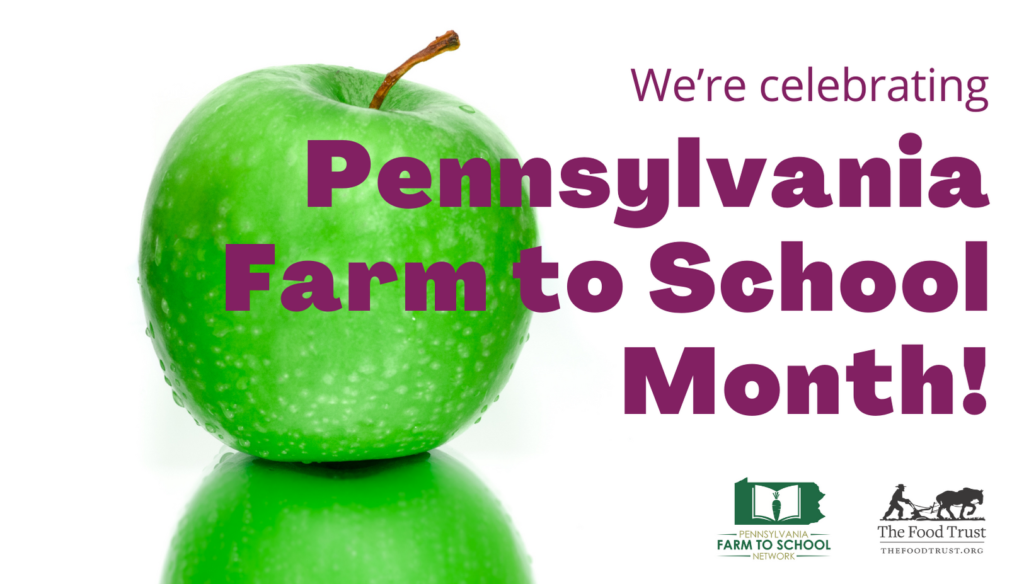Across Pennsylvania, farmers, distributors, educators and school food service professionals are coming together to keep our communities nourished during an extraordinary time. October is National Farm to School Month, and was recently proclaimed Pennsylvania Farm to School Month by Gov. Tom Wolf.
To celebrate, The Food Trust is highlighting the work of individuals who ensure children are connected to local agriculture. The full interview series is available here. Read excerpts below:
What do you find most rewarding about your work?
E. Nichole Taylor, Director of Food Services at Chichester School District
I love what I do. I love being able to share a positive food experience with students and to provide them with nutritious meals. You especially see the positive impact that you have in times like this when students really need and benefit from school meals. And we’re able to provide them with really high quality meals. This is why I do what I do — I am able to provide a service that meets a basic need. We can’t function if we don’t eat. If a child has to worry about where their next meal is coming from, that math test is not going to be on their mind right now. So again, being able to meet that need, this was the best career choice I ever made. I was a chef previously — I’ve been in different parts of the industry — but when I started in school food, I knew this was what I was meant to do.
Are there any opportunities, innovations, or collaborations that you’ve seen or been a part of as a result of COVID-19?
Lavar Prather, Operations Truck Lead at The Common Market
Yes! Collaboration has been huge. As just one example, The Common Market got to participate in the USDA Farmers to Families program as a response to COVID-19. It allowed us to partner with so many organizations and farms, and we were able to make such a huge impact together. The program kept our farmers farming and brought relief to our nonprofit, school and community partners. Through this federal program, our partners received our boxed, fresh fruits and vegetables on a weekly basis. I helped deliver those boxes week to week. All the boxes we delivered throughout the whole tri-state and beyond — I felt like I was a part of the bigger picture. It was all possible through collaboration.
What would be your advice for those inspired by your work and excited to try to replicate it in their community?
Noelle Warford, Executive Director of Urban Tree Connection
It has to be rooted and shaped by the experiences of people who live there. The best projects are developed alongside the people who live in that community. We perpetuate systemic racism by imposing “solutions” that are not grounded in the particular conditions of a community, and that fail to organize the people most impacted. Our projects should always position Black and Brown communities to have more control over their lives and wellbeing. We need to acknowledge how our food and land systems were built on the exploitation of communities of color; and commit to transforming systems of oppression.
In general, what opportunities do you see for farm to school in the future at Erie SD? In PA? In the US?
Stephanie Ciner, School Gardener at Erie Public Schools
We’re thrilled to have received the USDA Implementation grant in Erie, and grants from the PA Department of Agriculture in the past year have really helped us to expand our programming from just elementary schools into middle and high schools. We are always working toward opportunities that will reach as many students, staff, and families as possible. Last year, the state secretary of agriculture visited one of our school gardens to celebrate Urban Ag Week and the new state farm bill. We’re excited for more funding opportunities through the farm bills and the state’s recognition of the importance of agriculture education, which ties right in with farm to school.



